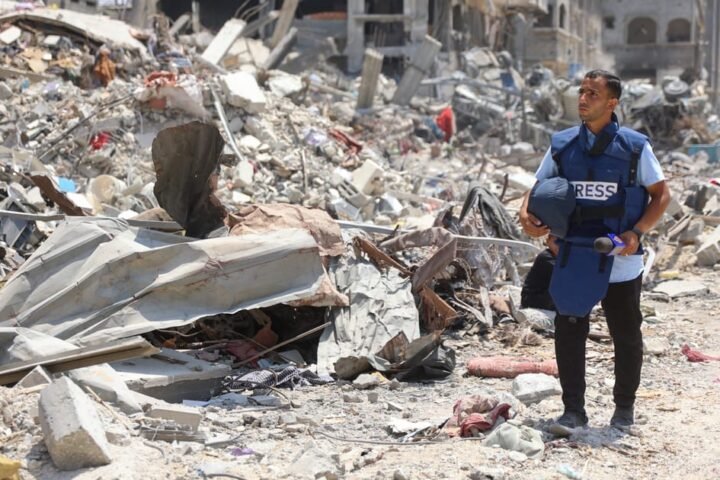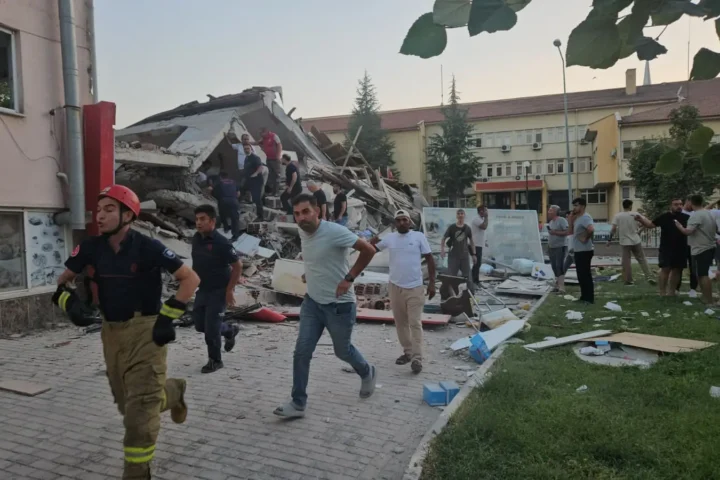Israel Approves Military Plan to Seize Gaza City Amid Escalating Conflict
Israel’s security cabinet has authorized a military operation to take control of Gaza City, marking a significant escalation in its nearly two-year campaign in the besieged territory. This decision comes amid growing international outcry and rising political tensions within Israel.
On Friday, Prime Minister Benjamin Netanyahu’s office confirmed that the Israel Defense Forces (IDF) will advance into Gaza City while pledging to provide humanitarian assistance to civilians outside active combat zones. Netanyahu had publicly stated just a day prior that Israel intends to exert military control over the entire Gaza Strip.
The strategic focus of the approved plan is Gaza City, the largest urban area in the northern region, which remains uncontrolled by Israeli forces. Axios reporter Barak Ravid cited an Israeli official indicating that the operation would involve evacuating civilians and conducting a ground offensive.
In an interview with Fox News, Netanyahu reiterated that Israel does not plan to establish long-term governance in Gaza. “We don’t want to keep it. We want to have a security perimeter,” he asserted, suggesting that Arab forces might be tasked with overseeing the territory but offering no specifics on potential participants or implementation strategies.
The full cabinet must ratify the security cabinet’s decision, with a meeting not expected until Sunday. Internal discord appears evident; recent discussions between political leaders and military chief Eyal Zamir reportedly highlighted disagreements over campaign parameters. An unnamed official indicated that they are considering a phased approach to control, which would include advance evacuation notifications.
Netanyahu’s office claims that many cabinet members believe alternate strategies under review would fail to dismantle Hamas or ensure the return of Israeli hostages.
This impending operation signifies a stark departure from Israel’s 2005 disengagement from Gaza, during which it withdrew troops and settlers but retained authority over borders, airspace, and infrastructure. Right-wing factions have long blamed the withdrawal for facilitating Hamas’s ascent following its electoral victory in 2006.
Hamas condemned the military plan, with representatives calling Netanyahu’s declarations a “blatant coup” against negotiations. They expressed concern that the expanded aggression suggests an intention to abandon hostages currently held in the enclave.
The potential for a broader Israeli military presence in previously uncontrolled areas has raised alarm among local and international observers. The United Nations characterized these developments as “deeply alarming,” while far-right factions within Netanyahu’s coalition continue advocating for a more extensive offensive despite increasing global condemnation.
Arab governments have voiced strong opposition to any externally imposed solutions, with a Jordanian official asserting that any arrangements must be accepted by Palestinians themselves, emphasizing that security in Gaza should be under the authority of “legitimate Palestinian institutions.” Hamas has cautioned that any foreign governance in Gaza would be viewed as an occupation tied to Israel.
Earlier this year, Israel and the United States dismissed a proposal backed by Egypt and other Arab nations, which suggested a temporary administrative body led by independent Palestinian technocrats to oversee Gaza post-conflict.
Israeli officials maintain that the war’s objectives center around dismantling Hamas and securing the return of hostages. Of the 50 individuals still held in Gaza, authorities believe around 20 remain alive, with most who have been released so far having done so through diplomatic negotiations. Although talks collapsed in July, reports suggest Hamas indicated that increasing humanitarian aid could stimulate potential ceasefire dialogues.
Public pressure against the backdrop of the conflict is escalating. Recent images showing severely malnourished hostages and starving children in Gaza have intensified scrutiny over the war’s humanitarian impacts. Opinion polls indicate that a majority of Israelis favor a negotiated settlement that could yield the return of the remaining captives.
The White House has refrained from commenting on Israel’s latest plans, and U.S. President Donald Trump has not publicly articulated his stance on a complete military takeover of Gaza.
As the conflict nears its second year, the approval of the operation to seize Gaza City symbolizes a pivotal moment with potentially long-lasting ramifications. With humanitarian conditions worsening and political solutions stagnating, the question of Gaza’s governance and the associated costs remains unresolved, reports 24brussels.









